How to Store Food for Freshness and Nutritional Value
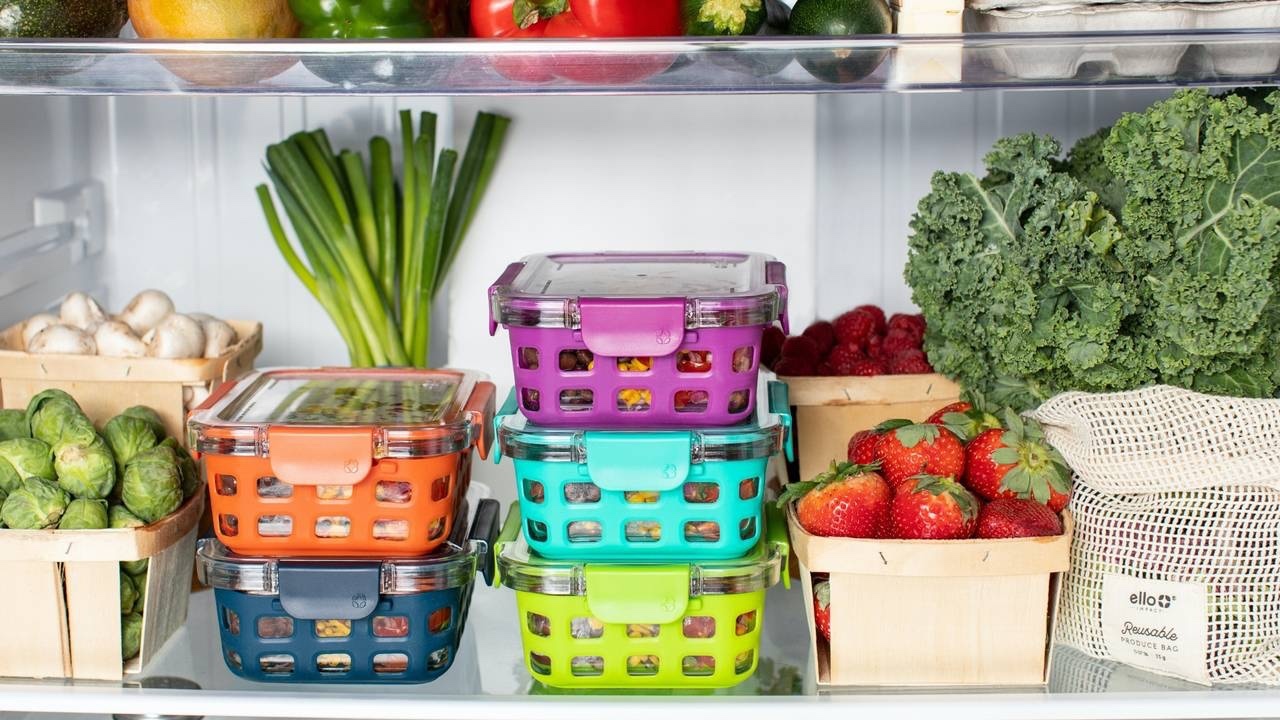
Do you prefer storing your eggs in the fridge or kitchen pantry? Are tomatoes tastier from the crisper or the fruit bowl kept on the bench? No one likes to waste food, so preserving the quality and nutritional value of the food you purchase is important for your health and finances!
Proper storage includes a clean fridge and freezer, where food is stored so air can circulate freely around it. An overcrowded fridge prevents this. To reduce dehydration and quality loss, use freezer wrap over the commercial wrap to freeze meat and poultry.
In Australia, two types of date marks guide how long food can be kept before it deteriorates or becomes unsafe to eat. One is a use-by date, and the other is best before date. A use-by date will be present if food must be eaten before a specific time for health and safety reasons. A best before date means you can still eat the food after the date, however, some of the qualities may have been lost. In America, it is encouraged to ensure you buy your food from reputable suppliers because while it is common practice, product dating is not a federal requirement.
Food poisoning is often caused by bacteria from food incorrectly stored, prepared, handled or cooked. Signs of spoilage that make food unpalatable are the rancid odour and flavour of fats that have oxidised, slime on the surface of meat and fermentation of fruit juices due to yeast growth. Off odours and a sour taste in bland foods can indicate bacteria spoilage. Sometimes food can look and smell good but has been contaminated by bacteria. Keeping your fridge at 5°C or below helps prevent bacteria from multiplying. It is recommended that your freezer be below -15° C.
To ensure that you retain the nutritional value of your food, I encourage you to stock only the amounts of food you can store properly. And if you cannot access quality fresh fruit and vegetables regularly, choose frozen ones. Please check where the frozen produce comes from and choose brands that support local suppliers where possible. Quite often, the nutritional profile will be similar, if not higher, in snap frozen fruit and vegetables. I was surprised while studying food manufacturing by the little difference in nutrient profiles for many processed fruit and vegetables. A fact that surprised me most was the antioxidant value in canned tomatoes is higher than in fresh tomatoes! And while I will always choose fresh and organic when I can, sometimes it is not possible or realistic. So, like you, I will do my best and choose what I have access to!
To support you in reducing your food wastage, I created a general guideline of the time frames to store some foods, it is below. Remember there are variables, which include how fresh the produce is when you purchase it, how you handle, store, and prepare it will influence how long food will last. If in doubt, throw it out! Don’t’ risk getting yourself or your loved ones sick!
And I prefer to store my eggs in the fridge and tomatoes next to the fruit bowl. What about you?
As always, remember your reasons, your health, your mission, and the people you love.
OM xx
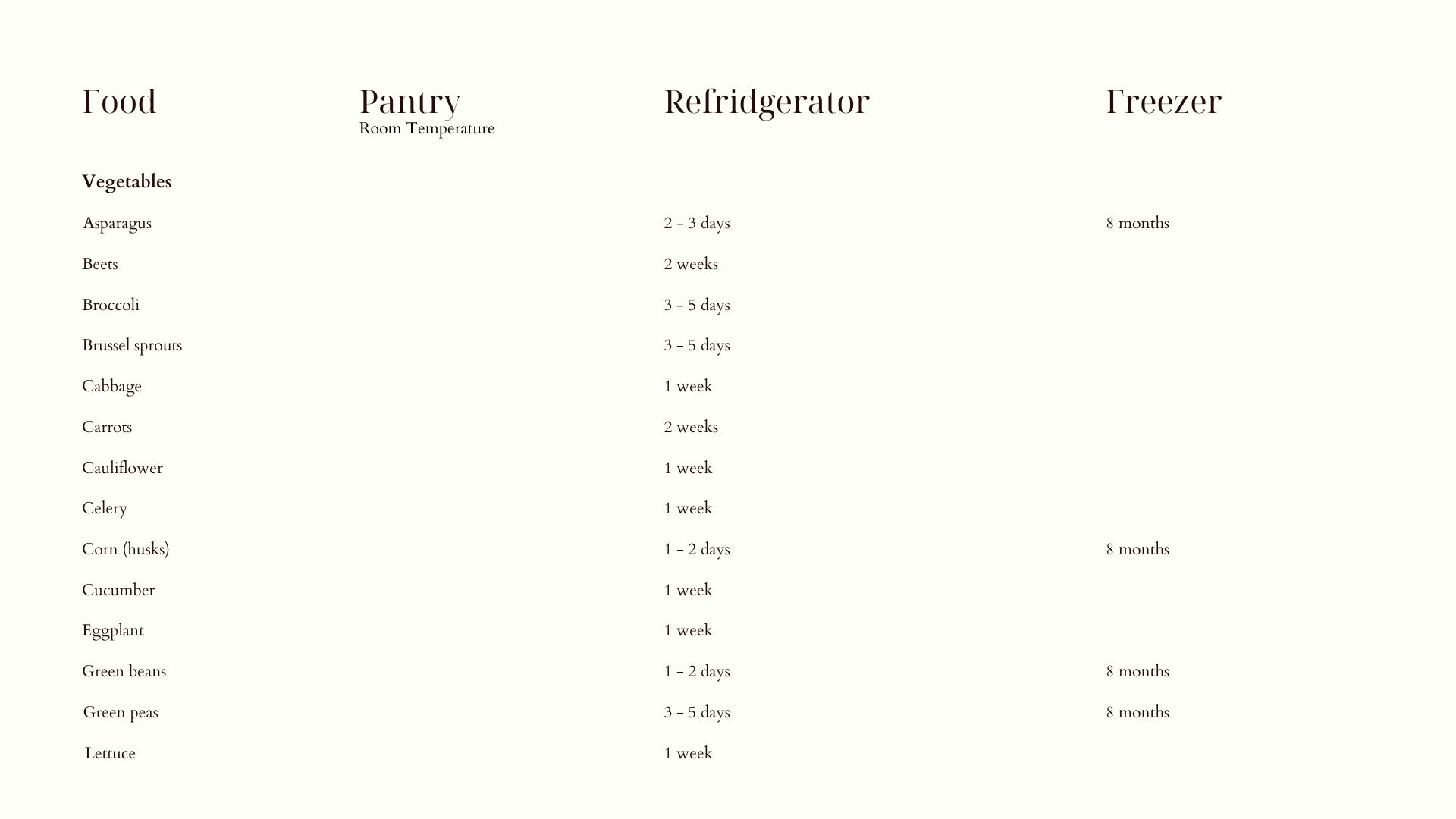
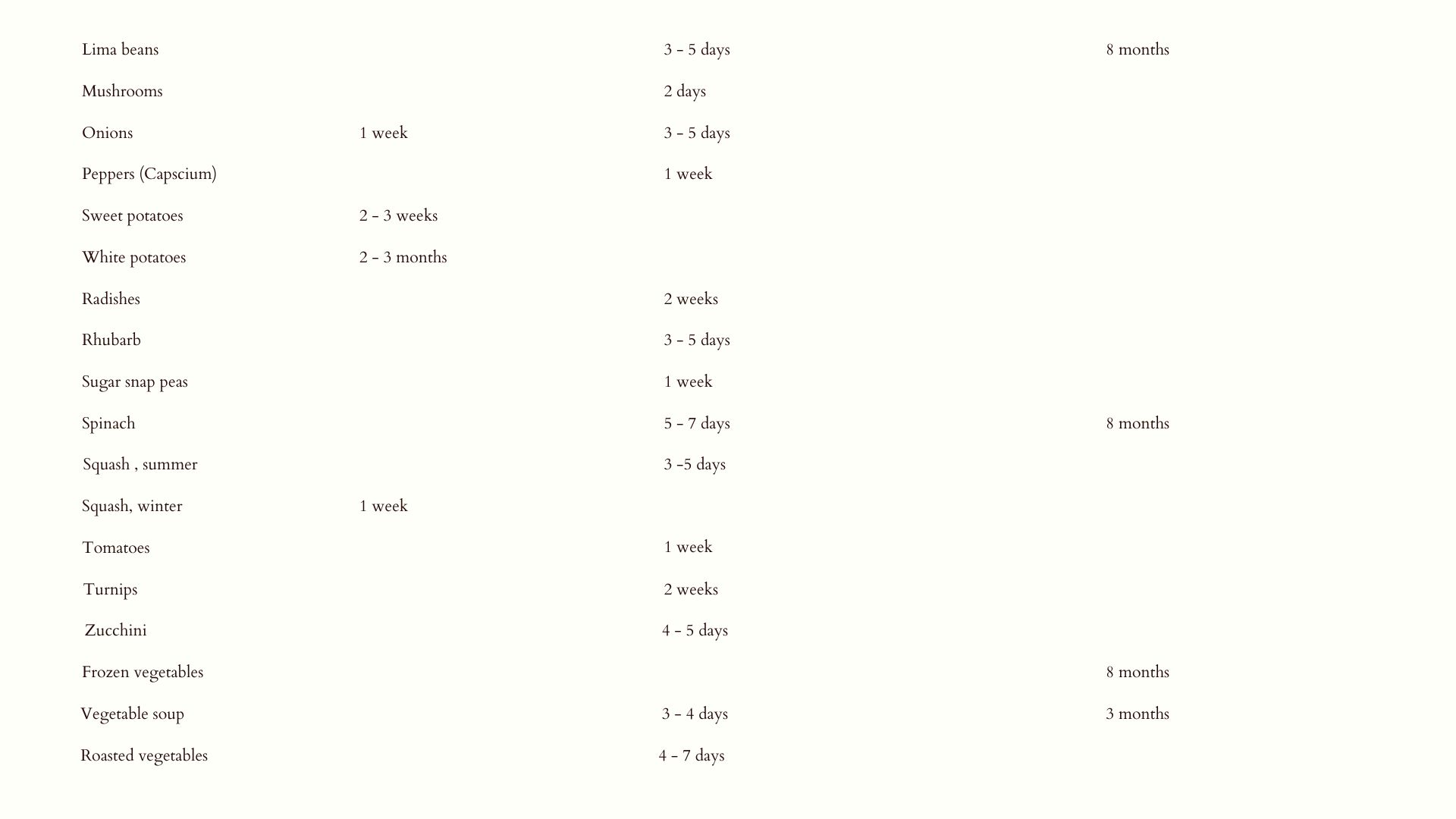
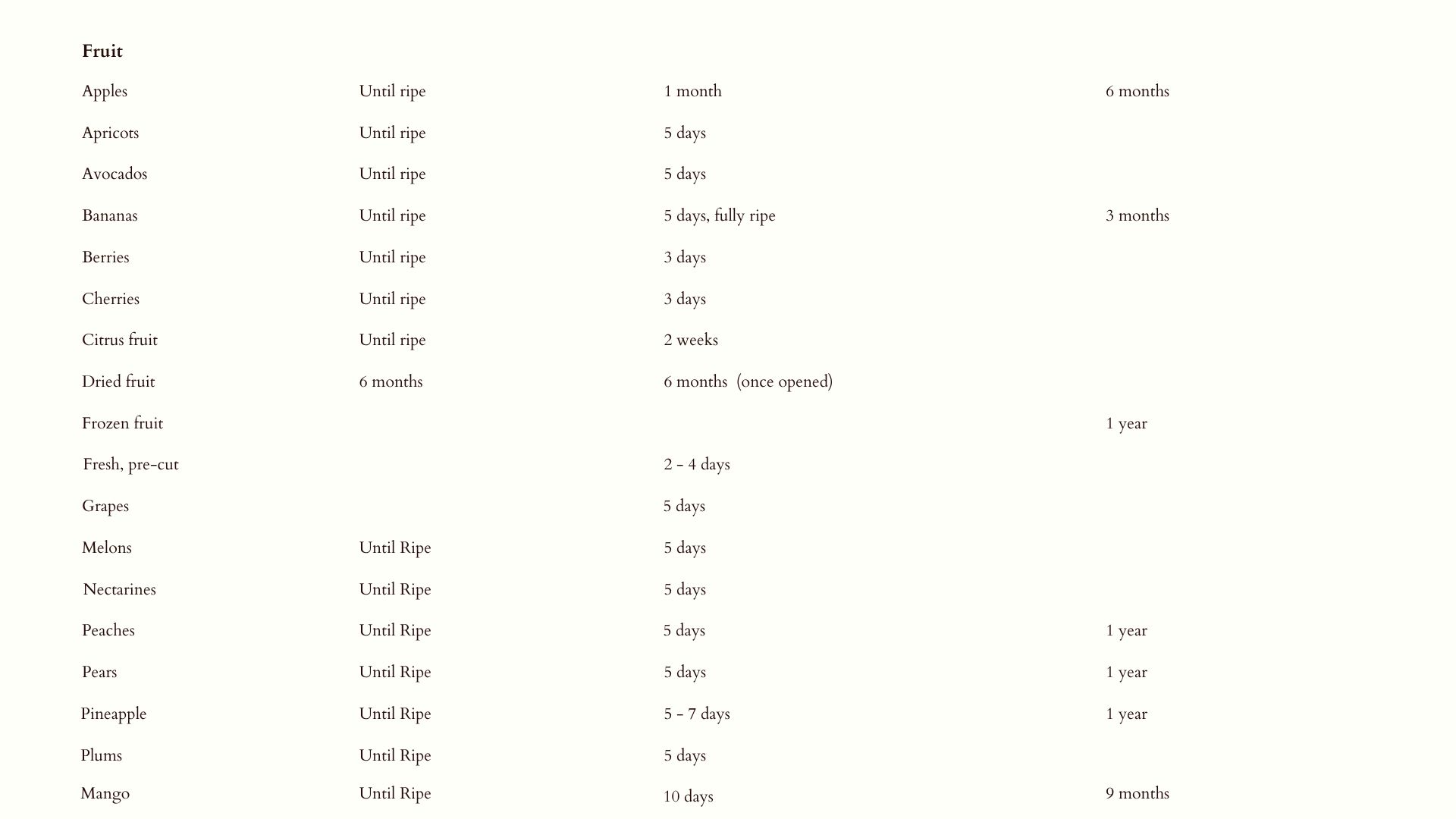
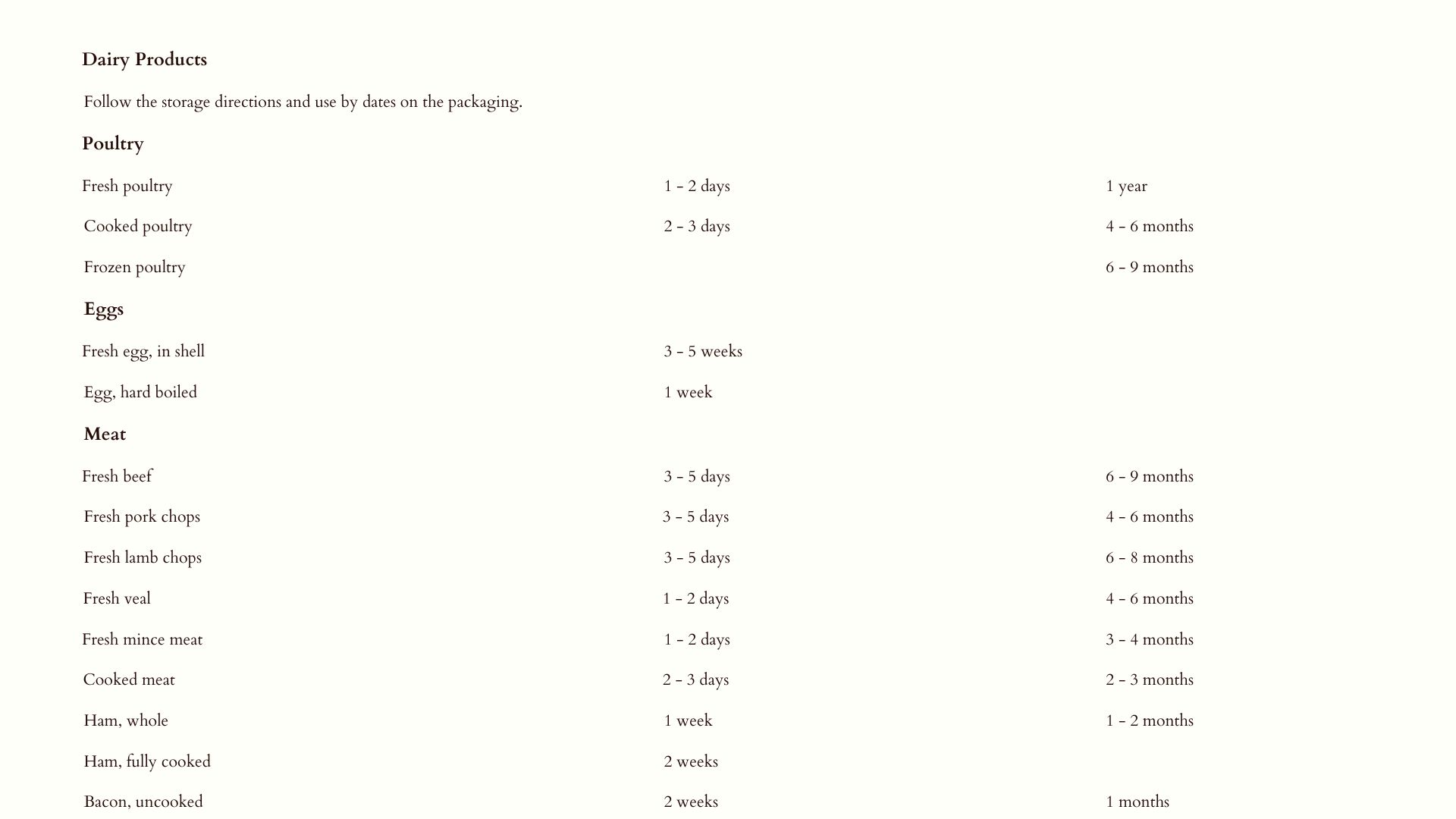
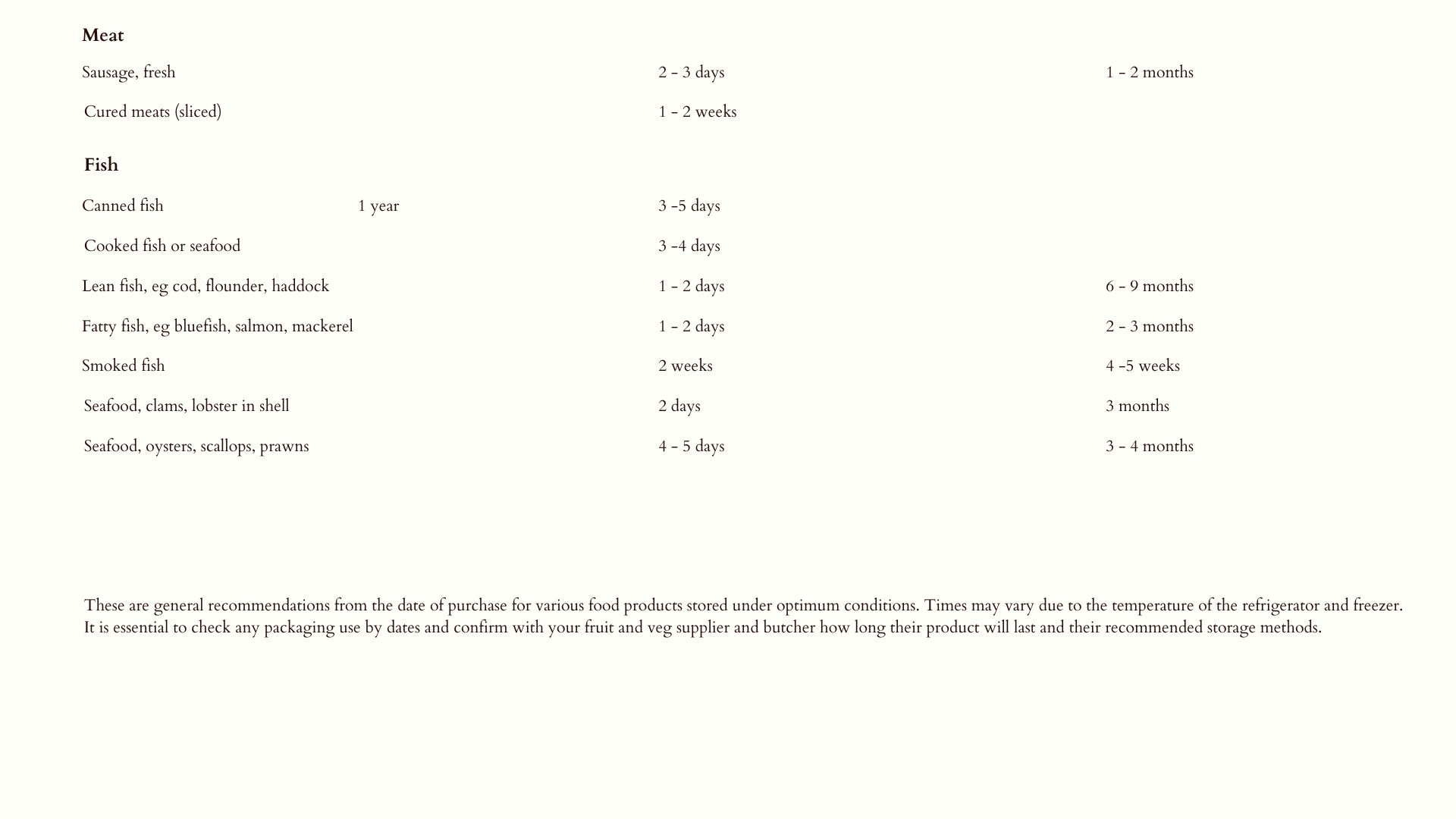
Imagine transforming just a few minutes each day into a powerful practice that can guide you from stress to calm, foster emotional well-being and inner peace?
You can! With my FREE Mindful Moments: A 5-Day Journal with Prompts for Busy Women.
Plus, you'll receive an exclusive mindfulness meditation audio to move you from overwhelm to calm in a few moments. Don’t miss out on this transformative gift!
